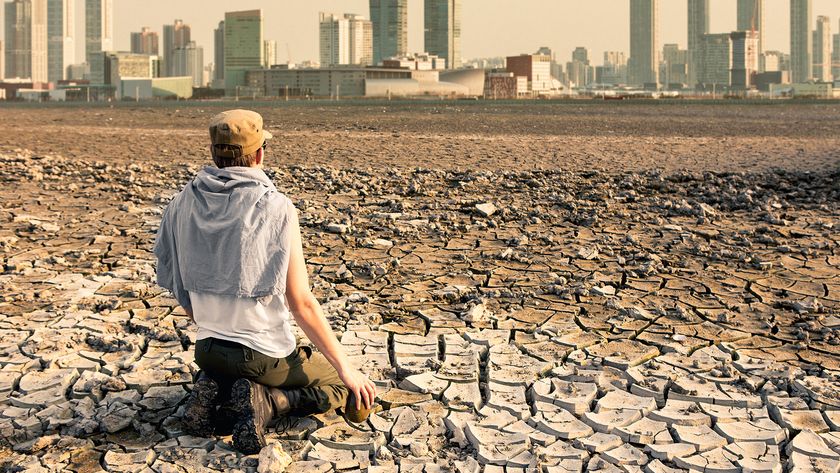
Why Businesses Must Think Green

Andrew Hutson, director of global value chain initiatives for the Environmental Defense Fund, contributed this article to LiveScience's Expert Voices: Op-Ed & Insights.
Is the business community its own worst enemy? That was my takeaway from a recent post on FastCompany's blog. In it, Joss Tantram makes the provocative argument that trade — "rights of enterprise, private trade and market activity" — is a fundamental human right. But he also notes that that right is increasingly at risk, given the market's failure to address the disruptive effects of climate change and other environmental challenges.
"Trade as we have known it is endangered," Tantram writes. "Clear trends in demographics, urbanization, water quality and availability, climate stability, resource scarcity and ecosystem health represent risks to the continuation of trade as usual." He suggests changes to trade law, policy and regulation that remedy the problem.
I agree with Tantram. Mostly. Trade is the lifeblood of society and the engine that enables people to live better lives. And, yes, systems of commerce are increasingly at risk due to self-inflicted social and environmental wounds. So we do need new public policies to ensure future prosperity.
It's also true that a growing number of businesses are keenly aware that environmental threats are also threats to the bottom line. As Tantram notes:
"A growing number of companies … recogniz(ing) that their longevity relies upon the health and vitality of natural capital and the continuing stable functioning of natural systems, have developed plans to transform their production activities to become sustainable."
So far, so good. But, I don't think Tantram's diagnosis or his cure are precise enough. The real question to ask is: Can business save itself from itself?
Sign up for the Live Science daily newsletter now
Get the world’s most fascinating discoveries delivered straight to your inbox.
In fact, despite the progress that has been made, the primary obstacle to enacting policies that will safeguard the environment and protect the "right to trade" is still the business community and its allies. Far too frequently, their knee-jerk reaction to proposed environmental policies is to try to kill them. Or, nearly as bad, many executives will sit on the sidelines while their more aggressive peers disrupt meaningful, system-wide action.
In the very worst cases, companies speak out of both sides of their mouths. Publicly, they maintain the importance of sustainability; privately, they apply money and influence to thwarting meaningful action — often by undermining sound science (as detailed in this report by the Union of Concerned Scientists).
We've come a long way in the past decade. Environmentalists have gone from being seen as the enemy in corporate boardrooms to trusted advisers. As a result, there are many exciting initiatives underway at corporations around the world aimed at tackling critical environmental problems. But, we cannot continue to pretend that voluntary programs alone are sufficient to solve the scope of the challenges we face.
Over the next decade, being a business leader (or a leading corporation) will mean helping to shape smart government policies that preserve ecosystems vital to the continued profitability of business itself. It will also mean taking a more aggressive role in overriding those voices within the business community that wish to maintain the status quo.
Business leadership of this sort is one of the critical elements to meeting the global threat of climate change. The stakes are high: Our systems of global trade and the ecosystems life depends on hang in the balance.
The views expressed are those of the author and do not necessarily reflect the views of the publisher.












